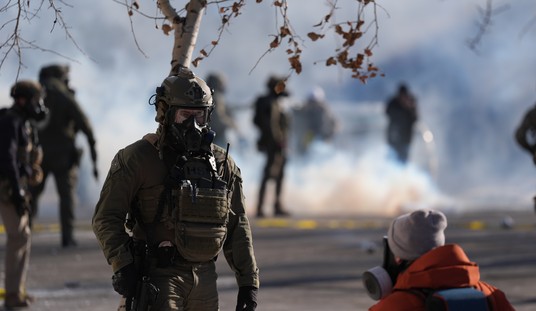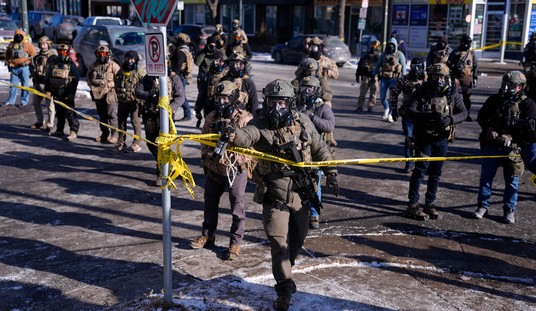 The Drug Enforcement Agency handed down an indictment this month in the case of a top Suriname counter-terrorism official. The DEA alleges that Dino Bouterse, “who held himself out as Commander of [Suriname’s] Counter-Terrorism Unit,” sought to aid Hizballah’s global drug trafficking network, its operations in South America, and its operations against the United States. The scheme included training terrorists to launch attacks against the United States.
The Drug Enforcement Agency handed down an indictment this month in the case of a top Suriname counter-terrorism official. The DEA alleges that Dino Bouterse, “who held himself out as Commander of [Suriname’s] Counter-Terrorism Unit,” sought to aid Hizballah’s global drug trafficking network, its operations in South America, and its operations against the United States. The scheme included training terrorists to launch attacks against the United States.
Bouterse is the son of Suriname President Desi Bouterse. He was arrested in Panama on August 29, 2013, and moved to the United States the following day.
Bouterse maintains his innocence.The operation he allegedly agreed to engage in hearkens back to conditions in pre-9-11 Afghanistan, when the Taliban harbored al Qaeda as it planned its devastating attacks on the United States.
According to the unsealed indictment, Bouterse sought to use his power and influence in his northern South American nation to assist Hizballah and even set up a training base in his country. That base was to host dozens of Hizballah agents. As part of the multi-million dollar deal, he also wanted an armed Hizballah guard for himself. He had agreed to provide false passports for Hizballah agents to facilitate their travel worldwide and into the United States. He agreed to help them build cover stories for their travel. He had also worked to supply cocaine for shipment to the United States, to fund Hizballah’s operations.
What Bouterse did not know was that the Hizballah operatives he believed he was dealing with were actually U.S. anti-narcotics agents. The confidential U.S. agents initially posed as Mexican narcotics cartel members. The U.S. agents obtained video and audio recordings of some of their meetings with Bouterse.
In 2013, Bouterse used his position to assist individuals he believed were members of Hezbollah. In exchange for a multimillion-dollar pay-off, Bouterse agreed to allow large numbers of purported Hezbollah operatives to use Suriname as a permanent base for, among other things, attacks on American targets. In furtherance of his efforts to assist Hezbollah, Bouterse supplied a false Surinamese passport for the purpose of making clandestine travel easier, including travel to the United States; began determining which heavy weapons he might provide to Hezbollah; and indicated how Hezbollah operatives, supplied with a Surinamese cover story, might enter the United States.
In June 2013, Bouterse and Defendant-1 met in Suriname with DEA confidential sources (the “CSes”), in a local government office. During the meeting, Bouterse showed the CSes a rocket launcher and a kilogram of cocaine.
Approximately one month later, Bouterse and Defendant-1 worked to provide transportation and security for cocaine being sent through Suriname to the United States. As a test run, Bouterse and Defendant-1 sent ten kilograms of cocaine on a commercial flight departing from Suriname. Bouterse personally verified the arrangements for the 10-kilogram cocaine shipment in a text message. The cocaine was intercepted by law enforcement officials after it departed Suriname.
In July 2013, Bouterse met with one of the CSes to discuss opening Suriname to the CSes’ purported Hezbollah associates.
Later that month, Bouterse met in Europe with one of the CSes and with two other men who purported to be associated with Hezbollah. During this meeting, Bouterse discussed initially hosting 30 to 60 Hezbollah members in Suriname for training and operations. He also indicated that he wanted a Hezbollah cell in Suriname to, in part, act as a kind of personal armed force. Bouterse confirmed his understanding that the purported Hezbollah operatives would operate in South America against American targets, and he agreed to supply Surinamese passports to the operatives—and to assist with their applications for visas to travel from South America into the United States.
As evidence that Bouterse could provide the cocaine and weapons specified in the deal, during one meeting in Suriname he allegedly brandished a kilo of the drug — along with a rocket launcher — to the confidential agents. He told the agents that he had had the package treated so that it could even slip past airport drug-detection dogs. During subsequent meetings, he detailed his plan to route the cocaine from Suriname through Trinidad to Ft. Lauderdale, Florida, for distribution and sale in the United States.
During a meeting which was recorded on audio and video in July 2013, Boutrese agreed to accept Hizballah agents who would be moved out of Lebanon, through Trinidad, to Suriname to begin training at the new base in his country.
In order to keep scrutiny of the operation away from Suriname, Bouterse requested that Hizballah never act against the U.S. embassy there. “I’ll organize everything in Suriname, no problem, but I have a special request,” the indictment quotes Bouterse saying in one meeting. “We have an embassy there, the U. S. embassy. But we can’t do them nothing.” The confidential American agent agreed, adding that “outside [of Suriname] we are going to f*** them.” Bouterse responded, “Outside, I agree.”
In August, according to the indictment Bouterse told his Hizballah associates that he had the Suriname training base and “toys” — weapons — ready for inspection. He was arrested at the end of that month.
The indictment against Bouterse includes three counts: attempting to provide material support to Hizballah; conspiring to import cocaine into the United States for distribution; and carrying and brandishing firearms and a rocket launcher during the activities that led to the first two counts. If convicted, he faces the possibility of multiple life prison sentences.
The case highlights how Hizballah has morphed from merely a Middle Eastern terrorist army backed by Iran and Syria into a global narco-terrorism network. It is known to be operating worldwide including in South America, is alleged to be in control of some of Syria’s chemical weapons, and has been accused of using complex money laundering schemes to finance its worldwide terrorist operations. This reporter has been told by former law enforcement agents of solid evidence linking Hizballah to operations across the Texas-Mexico border.








Join the conversation as a VIP Member